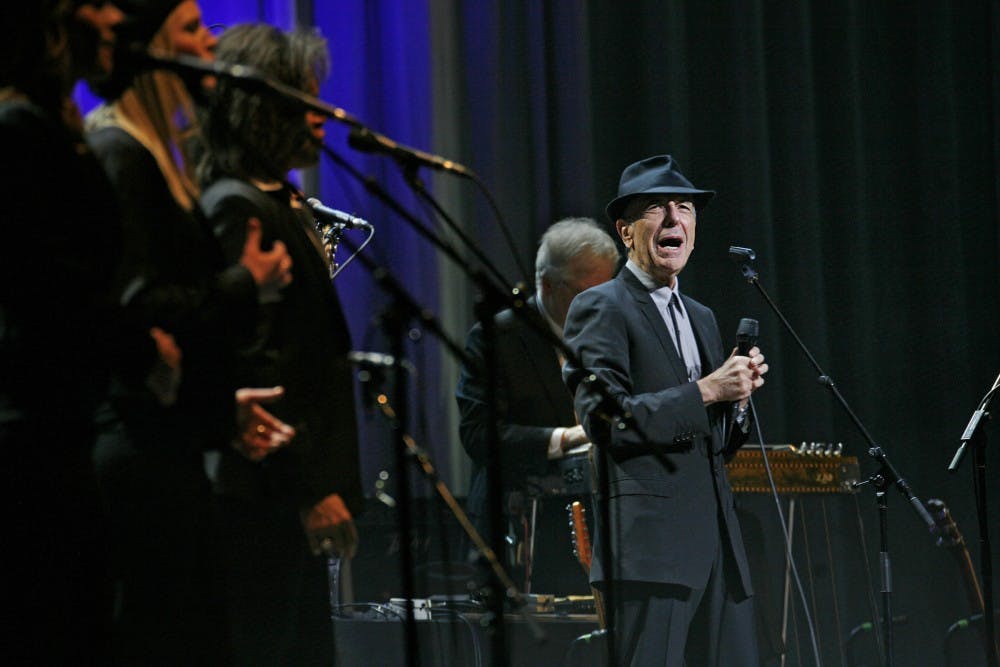When David Bowie released his final studio album “Blackstar” two days before his death, he used used the notes of his music to discuss the burgeoning perspective of looking at one’s whole life as a retrospective, one last statement, or call. He saw the eclipsed morphing of his natural surroundings being covered by some divine black sheet. David saw the ending of death as a flow fade out like a play that swims in darkness but to where there is no applause. Only silence forever.
Leonard Cohen may have felt the twinklings of these feelings of dread even before Bowie had. Always the somber character, Cohen decided to name his fourteenth album at the ripe old age of 82, “You Want It Darker," not entirely subtle with his mindset. To coincide with the album’s release, Cohen had made headlines with his macabre quotes: “I am ready to die. I hope it’s not too uncomfortable. That’s about it for me.” A month later he passed away. But with everything else in his life that was controllable, Cohen stood in front of it his own way without compromise. It only seems fair that something that was as stable and all encompassing as death would be taken in with the same attitude. A final album with a clear message, a definitive announcement of his thoughts on the matter, and the inevitable end. I wasn’t surprised when I found out Leonard Cohen died, it seemed almost expected.
Cohen’s start in the public’s consciousness came about in the 60s with the publication of multiple novels and books of poetry that earned him a devoted following in his home country of Canada. But a lack of income from his writings compelled him to move to the United States and latch on to the now developed folk scene of the late 60’s. His debut album “Songs of Leonard Cohen” was released in 1967, and a constant motion of music, touring and work became the standard of his life. His voice’s distinct deep drawl evolved with age, but it never seemed to falter whether it was sung over acoustic guitar, chorus or even synth in the 80’s. It grew refined to show the extent of the artist’s work and life and to prove there really was damage to so many years of living.
Born Jewish, Cohen embraced multiple theologies, but seemed to develop connections with Judaism and Buddhism. He also deeply admired Jesus Christ as a man. These inspirations storied themselves throughout Cohen’s work, with 1984’s “Hallelujah” manifesting itself into one of the first popular gospel ballads, thanks to popular covers of the song by John Cale and Jeff Buckley. All his work came with a spirituality, exploring subjects like religion, sexuality, personal relationships. He never seemed to phase with the times, he seemed always constant and welcomed.
Lately, Cohen had had a resurgent presence on tour and in the studio. Which would be truly gratifying, if it weren't for the fact that Cohen’s manager Kelley Lynch stole millions of dollars from him and all his latest pushes came from a place of necessity. Even with all his new work, it felt like a weird detour with a nice destination, but it never felt like the original map that Cohen had drawn up. This new reality made Cohen adapt fast and build a better way of living for himself, something that should be a reaction from all your life’s decisions, not a last ditch effort. Cohen seemed ready for everything that came his way, death especially. He was an everyman who only wished to speak a word or two before venturing off into the last black night.

